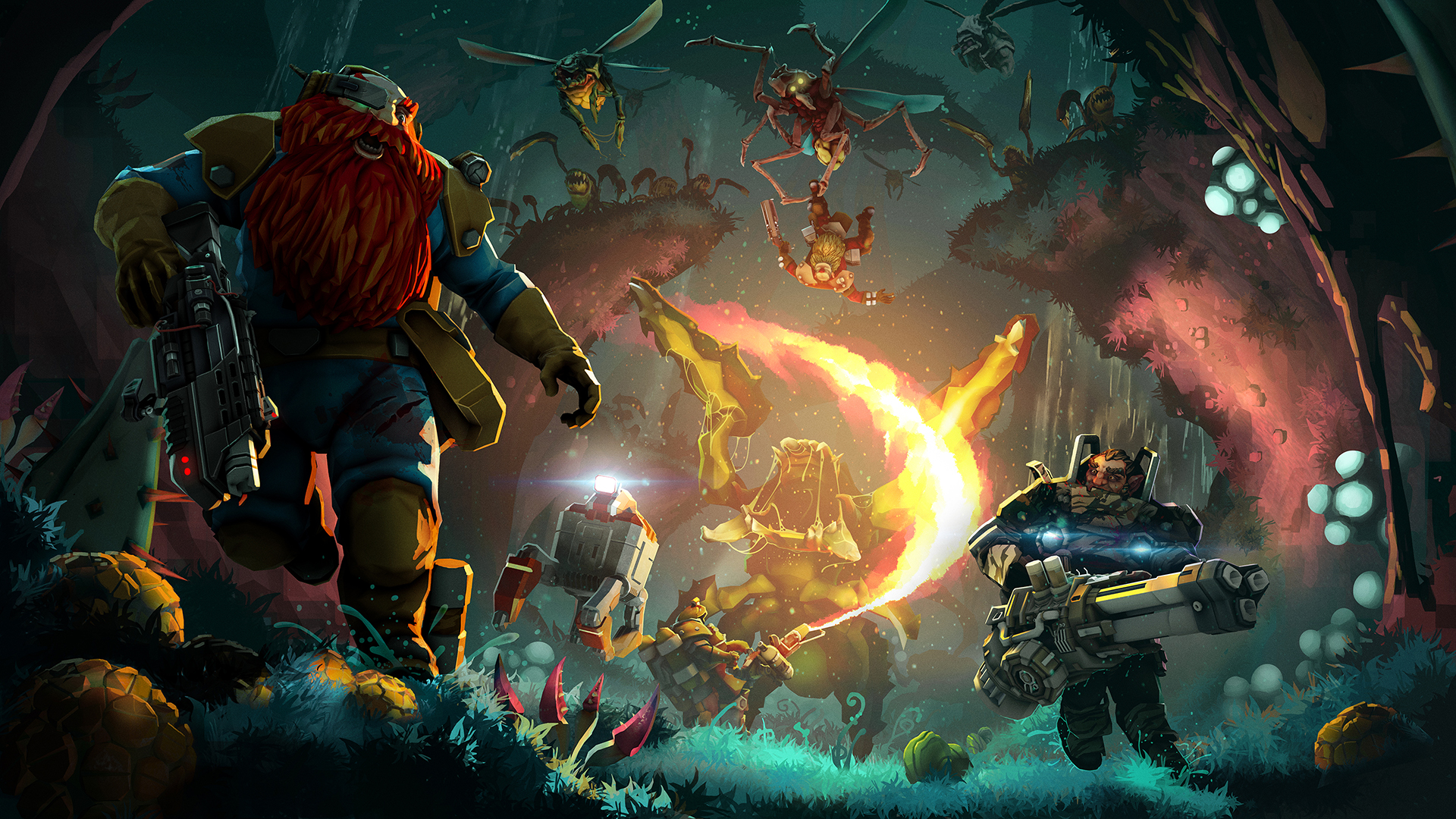
In a job like this, you spend a lot of time looking through different online gaming communities, hunting for news, stories, and the atmosphere around a game. From Reddit to Facebook to Discord, from multiplayer shooters to competitive card games to roguelikes, there's only one constant: everyone's always complaining.
Okay, not quite everyone, but negativity predominates far more than it should. For every one cheerful post about how much fun someone's having with a game, there'll be ten complaining about buffs and nerfs, whipping up conspiracy theories about the developers, chiding other players for their behaviour, or claiming the game was better at some unspecified point in the past. Almost every game community across the internet is like this. With one notable exception.
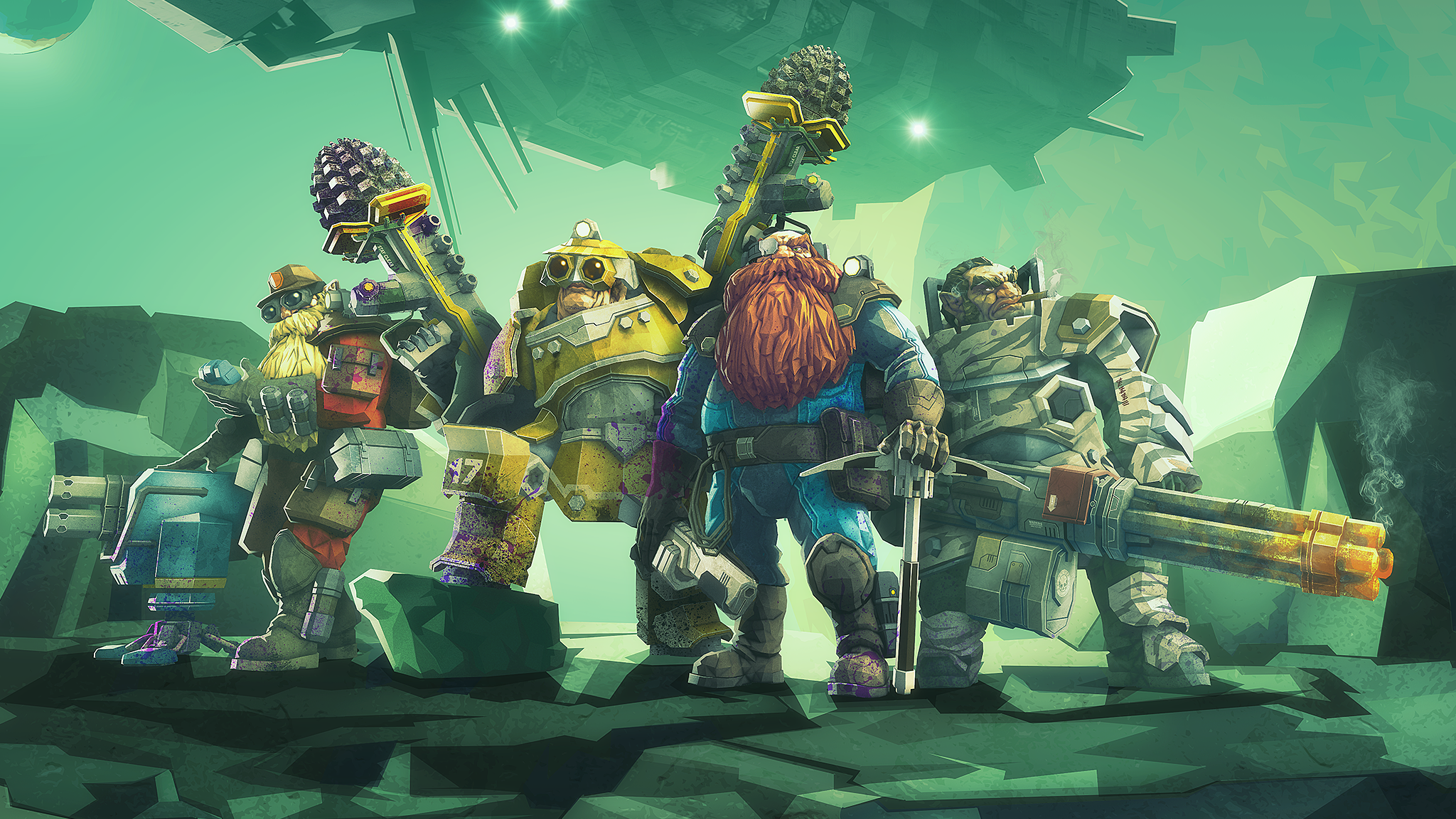
For years now, in my stormy feed of Call of Duty players screaming about the latest gun and Hearthstone players declaring the meta dead for good this time, there's been this one consistent bright spot—a bunch of dwarf miners cheerfully shouting "Rock and stone!". Through thick and thin, the community around co-op shooter Deep Rock Galactic has been a haven of positivity. Sure, they have their problems with updates and balance changes sometimes, but on the whole they spend their time sharing memes, offering advice to "Greenbeards" (newcomers), telling funny stories of their experiences in the game, and posting screenshots of vaguely phallic ore formations.
The question is: why? What makes Deep Rock Galactic fans so cheerful? Is it a magic that can be replicated?
Working together
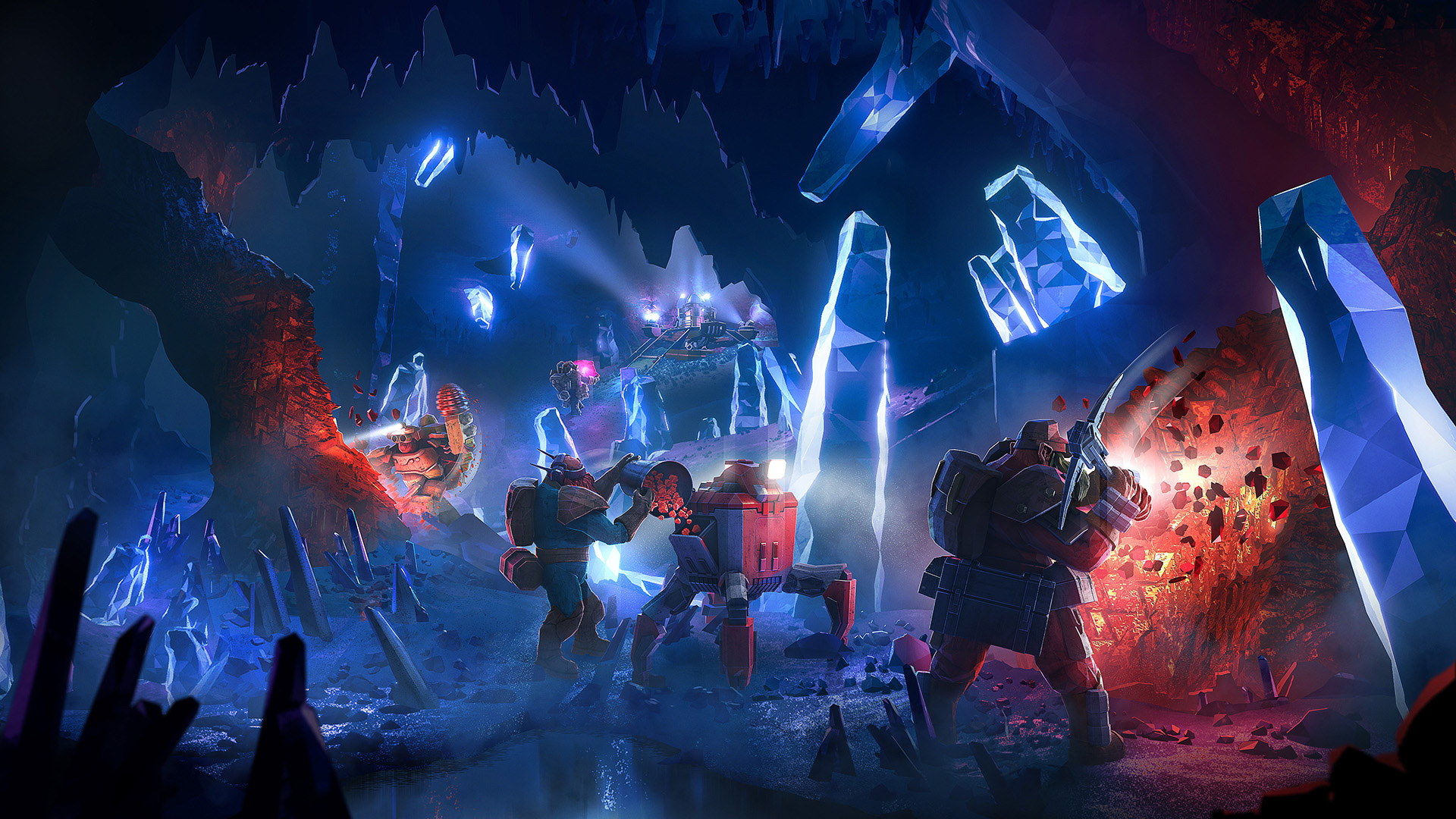
The game never, at any point, says somebody is better than someone else.
Mikhail Akopyan, lead game designer
The most obvious answer is, it's a co-op game—working together in harmony is the goal of the whole experience, and that has certainly helped foster a friendly community. "It doesn't hurt, the fact that the players never have a reason to antagonise each other," says Mikhail Akopyan, lead game designer at Deep Rock Galactic developer Ghost Ship Games. "The game never, at any point, says somebody is better than someone else."
For those unfamiliar, Deep Rock Galactic is a game about space dwarves extracting ore and resources from a planet infested with alien bugs. Surviving a mission means keeping swarms of enemies at bay, but also manipulating the environment and finding novel solutions to obstacles. Characters can dig through the earth, create platforms, set up ziplines, and more to create paths to their goals, and because environments are procedurally generated, there's no established solution to any problem, forcing creative thinking. Those abilities are spread between the different classes, so it's only by working together that you can succeed—naturally fostering a sense of teamwork and cooperation.
But, of course, there has to be more than just that—five minutes on the Darktide subreddit will quickly disabuse anyone of the notion that the co-op genre inherently creates friendly communities, and we've all had the experience of getting yelled at in a game like this for getting something wrong or not following agreed-upon strategies.
Rock and stone!
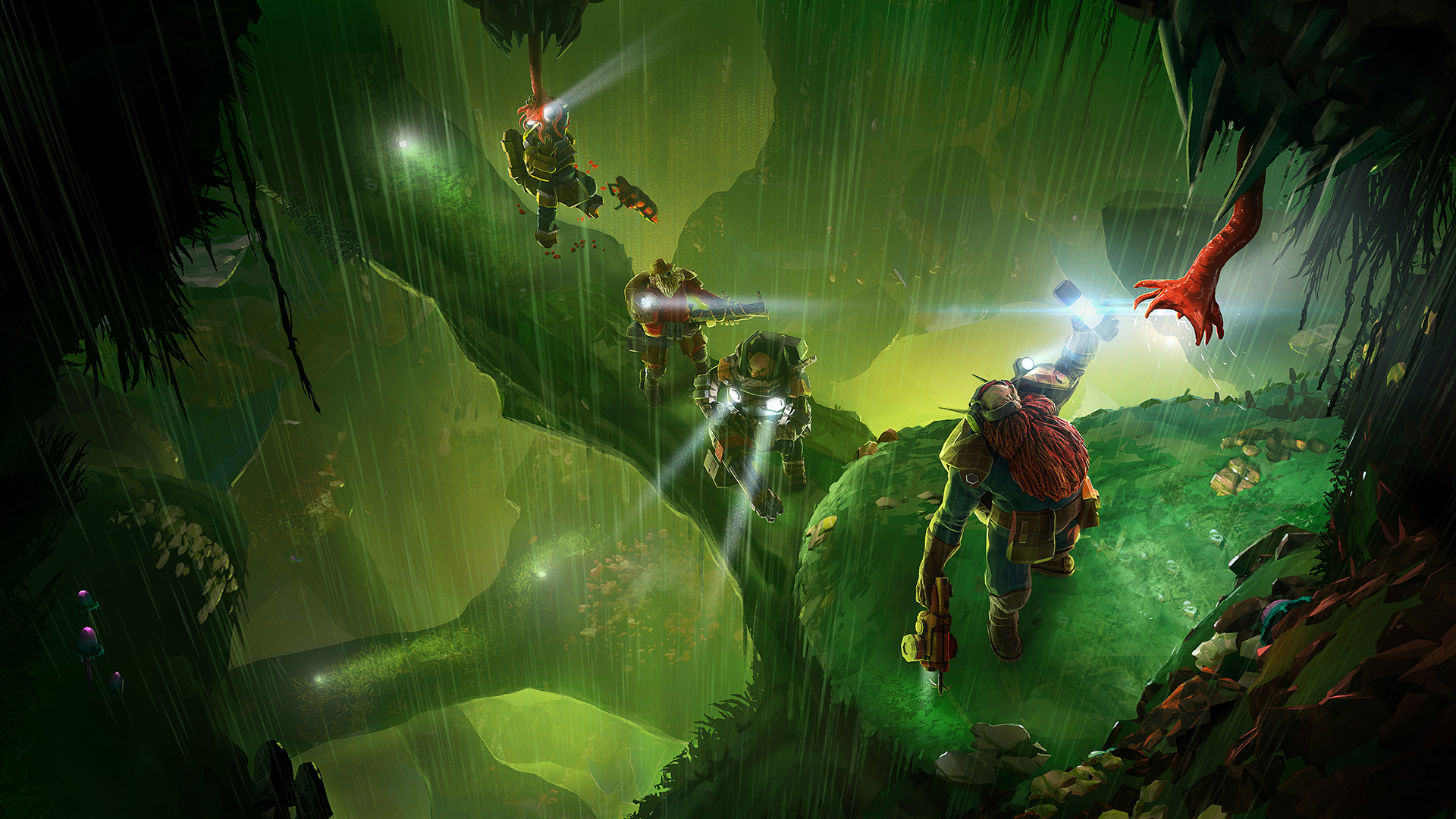
These are not super soldiers or galactic badasses. They're tough but... they're tough the way a miner might be tough, or an oil rig worker.
Mikhail Akopyan, lead game designer
I suspect the other key part of Deep Rock Galactic's friendliness formula is the dwarves themselves. Not because they're nice, positive characters—they aren't, really. They're grumps who spend most of their time complaining about their work or hurling insults at each other or their robotic assistants. But they're relatable—they may be in space, fighting alien bugs, but at the end of the day they're blue collar workers with a job to do.
"These are not super soldiers or galactic badasses," says Akopyan. "They're tough but… they're tough the way a miner might be tough, or an oil rig worker." Taking the setting and characters out of the militarised realm most videogame heroes operate in has a fundamental impact on the atmosphere of the game, emphasising a kind of camaraderie in the face of a tough job. This is a game where before a mission, you can buy the team a round of beers to gain buffs. The stakes feel important, yet mundane—it's not life or death (well, mostly), and it's more important that the job get done than that it get done with exacting strategy.
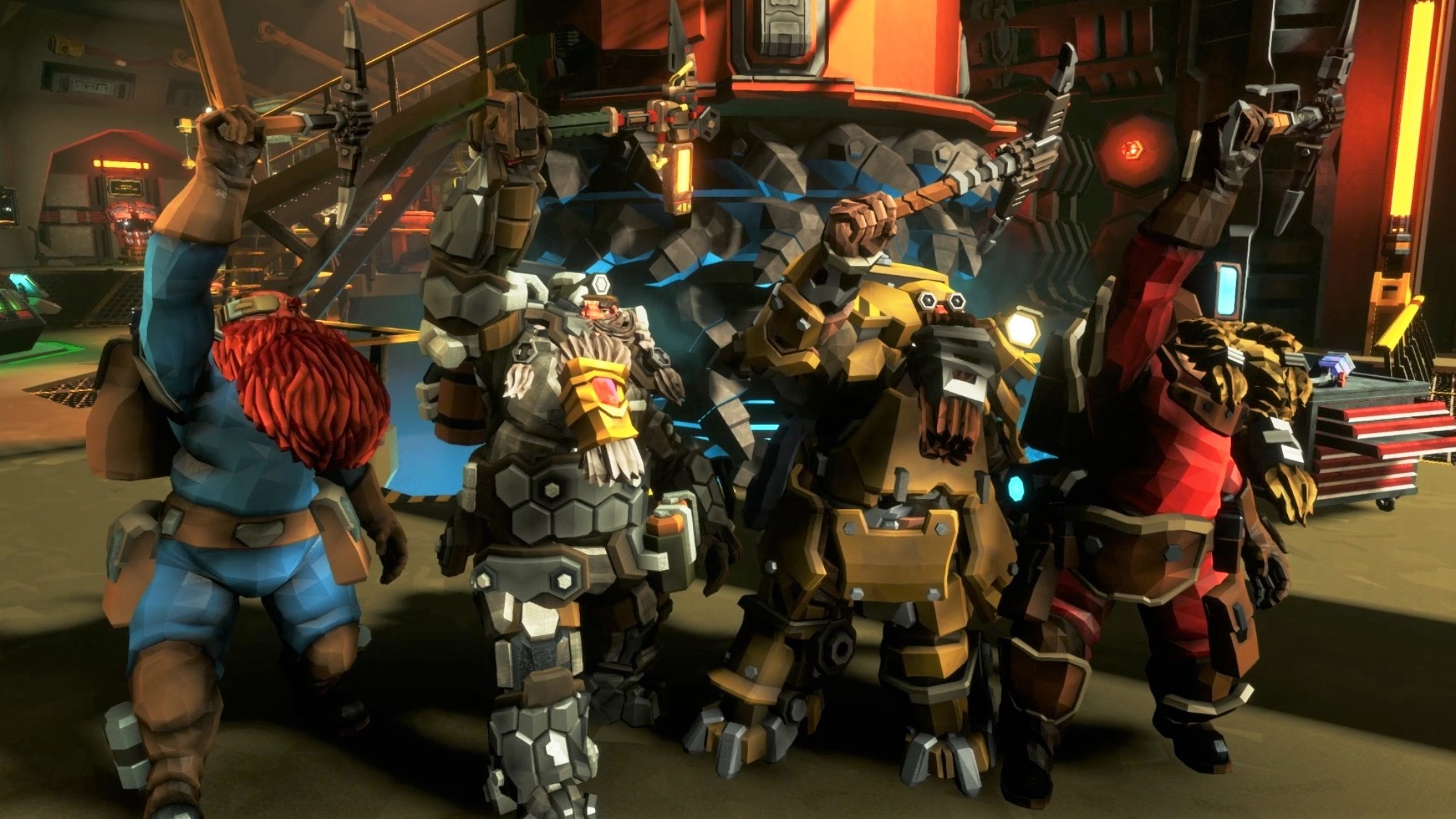
That's embodied most perfectly in Deep Rock Galactic's rallying cry: "Rock and stone!". This all-purpose salute has a dedicated key in the game—when pressed, your dwarf raises their pick in the air and enthusiastically yells the phrase. What does it mean? On the face of it, not a lot, but context gives it function. When you're all huddled around the oil rig's starter button, "Rock and stone!" means "Are we ready to start?", and called back in response it means "Yes, let's go!". When you're scouting ahead of the group, it can mean "Come over here, I've found something"; when using an ammo pod, it can mean "I'm restocked and ready to push on".
But most importantly, it's a celebration—a way to cheer a victory, congratulate someone on a job well done, or express glee at a fortuitous discovery. In that form, it quickly spread beyond the game—in all of Deep Rock Galactic's online communities, it's used as a fun response to almost anything, and in other game's communities, it's a way for Deep Rock Galactic fans to find each other and share an in-joke.
The salute arose early in the game's development, a very deliberate design choice. "Okay, this is a co-op game, and you're not necessarily going to be talking on the mic," says Akopyan. "But it's very important to be able to acknowledge somebody, the way you might in real life with a nod or just some body language, which you can't do in the game, right? It was made to be a rallying cry, for the players but also it makes sense in the game world that the dwarfs would say something like this to support each other in this weird universe they've got stuck in." You can actually read about the complete origin of the phrase in a great blog post by the team.
On the frontlines
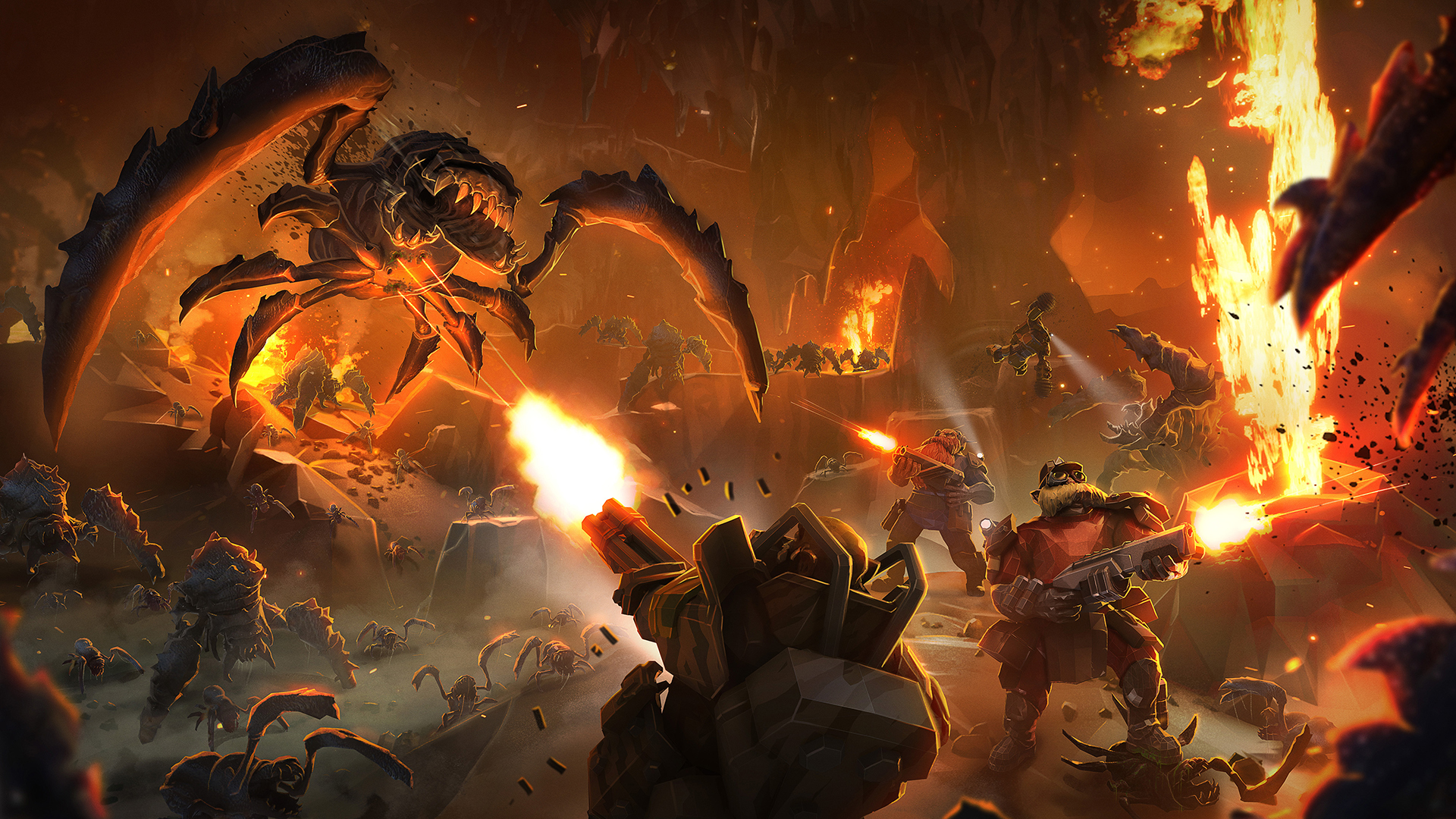
It makes me visible, and it makes people feel that we're there.
Jacob Herold, community manager
A positive community can't be built and maintained purely through a game's design, however. Over Deep Rock Galactic's five years of life so far, Ghost Ship Games has taken an active hand in its many online groups—starting from when they were just a small gang of players in the first alpha, all the way to the increasingly growing fanbase of today. Log in to the official Discord, or the Facebook page, or the Steam forums, and you'll find members of the team participating in the conversation—and the studio also moderates its own subreddit.
"I have seen people complain about it," says community manager Jacob Herold. "They say developers shouldn't run their own subreddit, that they'll censor stuff. But I think we are very lax on the moderation there. People can be unhappy with things, as long as they're civil. But one of the advantages of running it ourselves is I can go there, give feedback to a post or just show my face, and pin my post to the top of the replies. It makes me visible, and it makes people feel that we're there."
Community managers are usually on the frontlines of what can feel like a war with fans. Their job is often to take the brunt of a fanbase's toxicity and abuse. But for Herold, that visibility leads to a far more positive relationship—one that can be seen very literally through Reddit upvotes. "I was one of the top 1% contributors on Reddit based on karma in 2022," says Herold—the reaction is typically so positive that other members of the team ask to get to post things too, so they can share in the love. You won't find many other games where developers are volunteering for the frontlines.
Fierce feedback
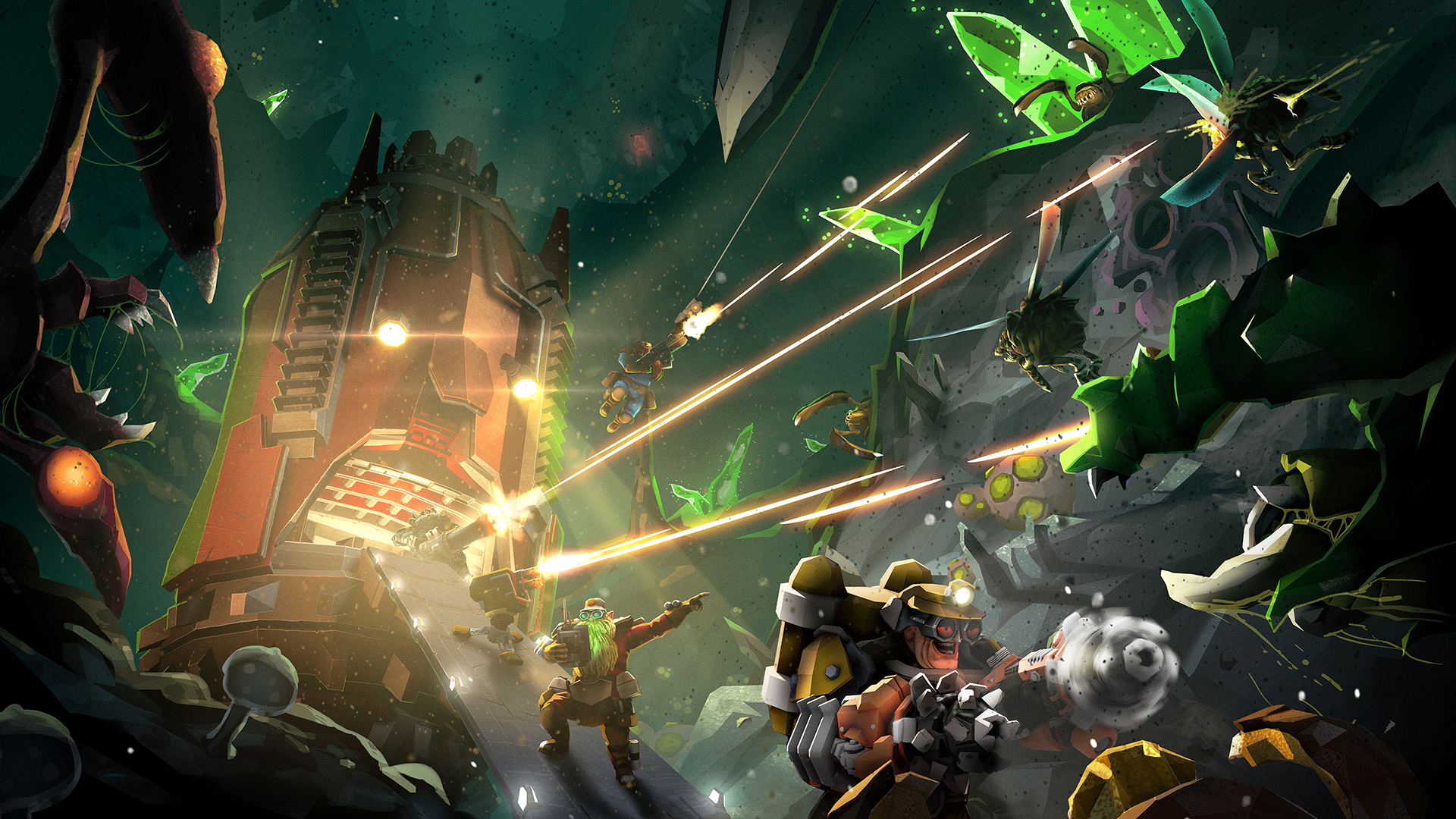
I got sent a document that was 32 pages long, of literally explaining what's wrong with the various weapons and proposed solutions to them.
Mikhail Akopyan, lead game designer
Things aren't 100% rosy, by Herold's own admission—as the community has grown, inevitably "more toxicity is appearing", he says, "but I'm not seeing any levels like in other games." There's criticism, of course—Deep Rock Galactic is not a perfect game, and like any live service game some updates are received better than others—but that feedback is more often than not respectful, and even at its most extreme it seems to be more reflective of passion for the game than pure negativity.
"I got sent a document that was 32 pages long, of literally explaining what's wrong with the various weapons and proposed solutions to them," says Akopyan. "That was some fierce feedback right there! We get plenty of 'Hey this is not working, this is not okay'. But I think it's also a relationship that we have developed with our player base, that there is a place for them to give this feedback."
As I talk with the two, the genuine affection they have for their players shines through. It's clear that, large as the fanbase has grown, they're thought of by the studio as a community, not just numbers. And that feeling seems to be allowed to lead the way at Ghost Ship Games.
"From my experience working here… I haven't experienced any pressure from above," says Herold. "I know people in the same position [at other developers] that have to deliver numbers, campaigns, reach certain goals. The entire time here it's just been, like, we're doing what we want, what we think will feel good... If you support the community, if you're open and accepting of feedback, the growth will come."
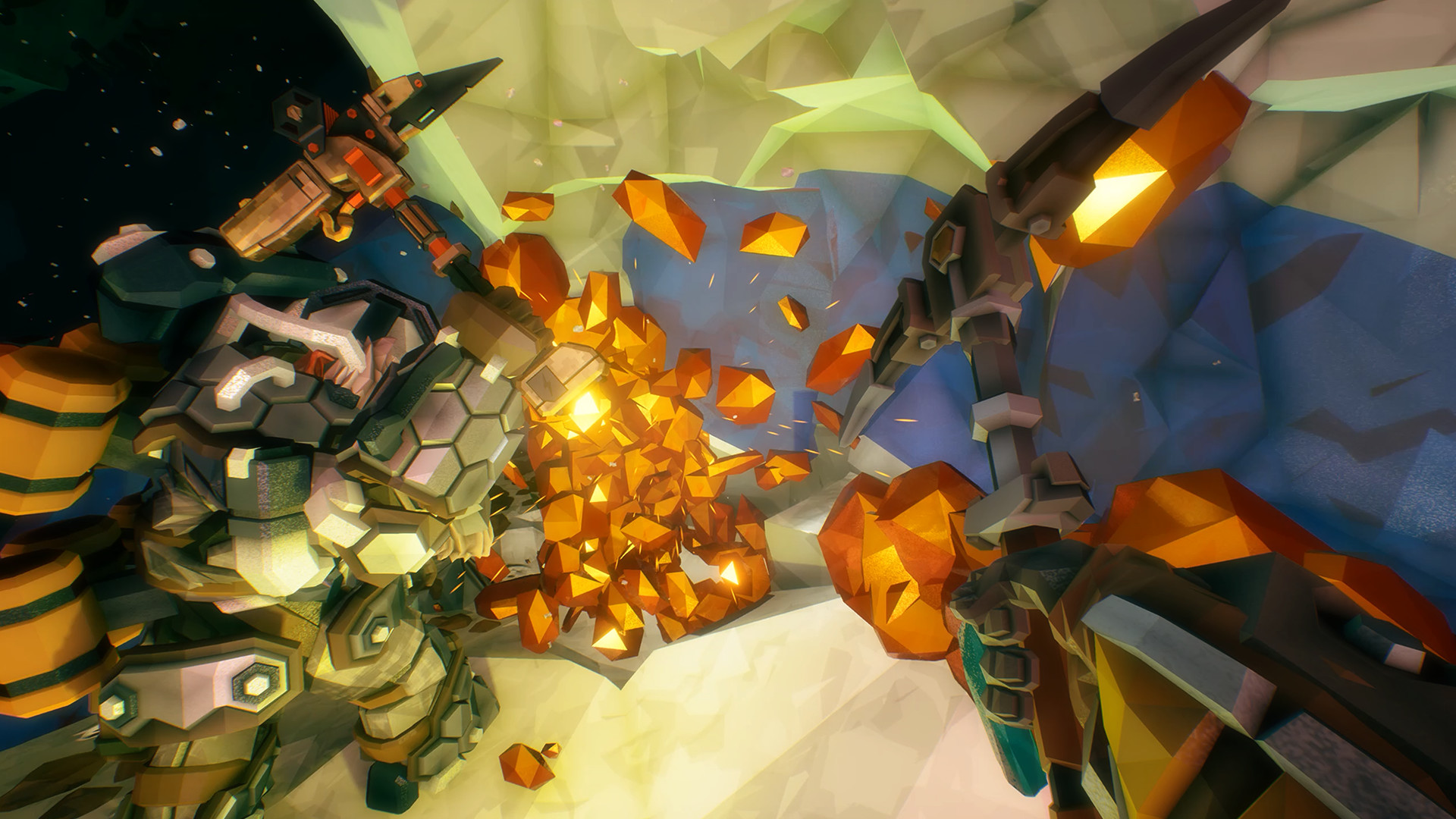
It's not a situation the studio takes for granted. Far from being smug about the game's success, both Herold and Akopyan are keen to stress how fortunate the position they're in is. "It's very easy to talk about and have space for this stuff right now, because things are going really well," says Akopyan. "But it's important to keep in mind that when we launched, it was like 'If we can sell 250,000 copies then we're okay. That's where we're coming from." In the end it sold 500,000, and has since climbed to 5.5 million.
"So, of course, things have been going well, and that makes it easy to not set targets, and not claw onto [the numbers]. But games development is hard. We have this luxury of saying, 'Let's just keep trying to make this the best game we can make it,' and that seems to be working. But I think that is a luxury not every developer has. It's not a luxury I've had before."
In other words, there's no easy or obvious path to a positive community. To my mind, that makes it all the more important for both developers and players to cherish them where they find them.
In their own words
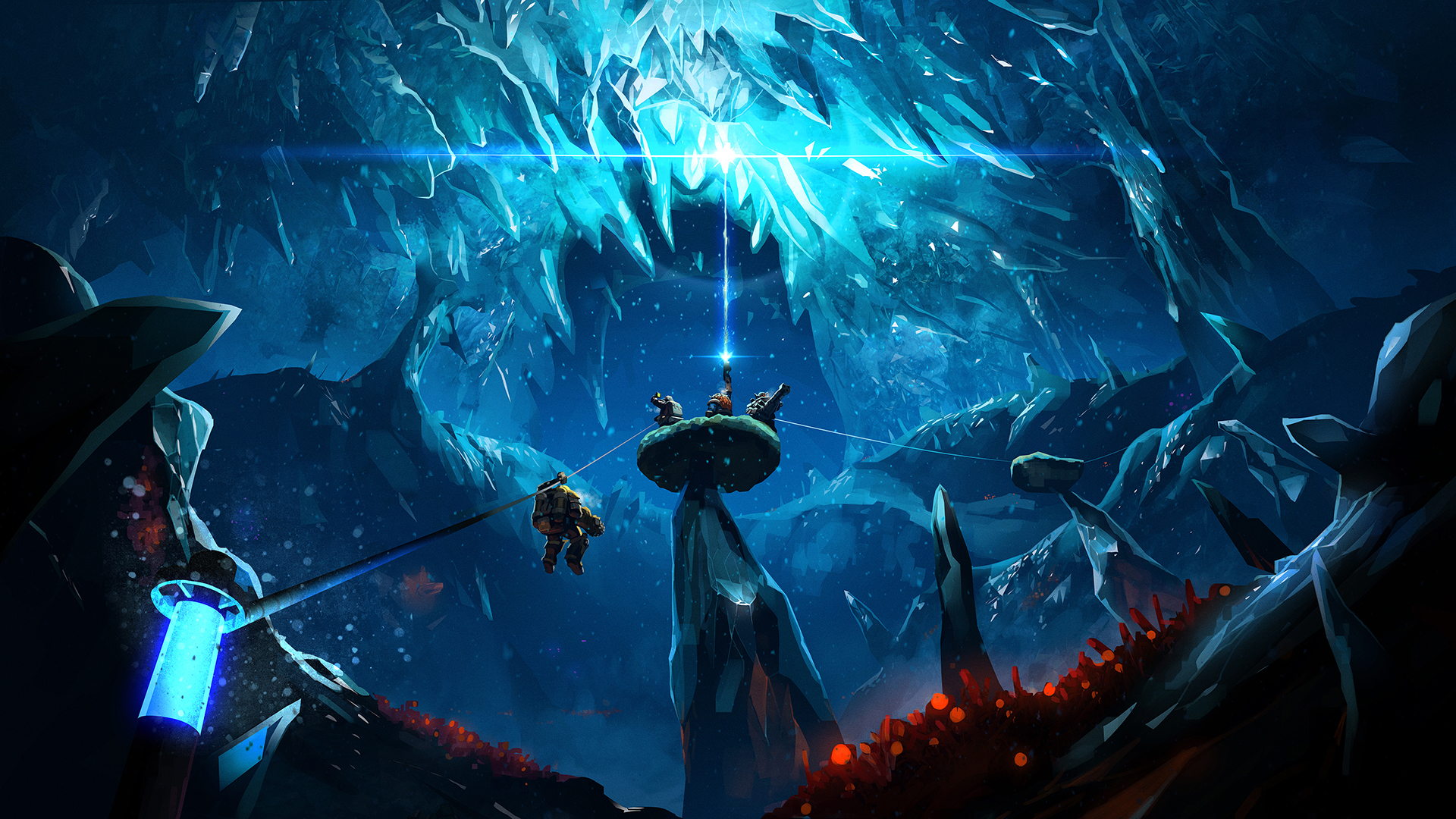
I think people who enjoy dwarves and identify with them are a certain breed who work well together and get along.
NecroCowboy, redditor
I'd be remiss if I didn't finish by letting the Deep Rock Galactic community speak for itself. I headed to the subreddit and asked them directly: Why are you all so positive?
Many were keen to give credit to Ghost Ship Games. "I think a major part is played by the devs being so active in the community," says HissyHazza. "They play their own game and understand a lot of what the playerbase wants. That doesn't mean they give the playerbase everything they ask for, if anything they maintain a very clear vision for where they want their game to go, but it does mean the community feels like part of the game's growth."
Some had more niche theories: "I think people who enjoy dwarves and identify with them are a certain breed who work well together and get along," says NecroCowboy. Someone should run a study on this.
But most of them just wanted to share how much they enjoy playing with their fellow dwarves, and the friendliness they experience from each other every time they log in. "For the most part it doesn't matter if you're account level 1 or 1000, there is something for you to do and people will join you," says That_CDN_guy. "In the 300+ hours I've played, I can count on one hand how many negative experiences I've had with the community. Really, who wants to be a jerk in a game where you're a space dwarf that gets to drink beer, dig holes, and shoot bugs?"







